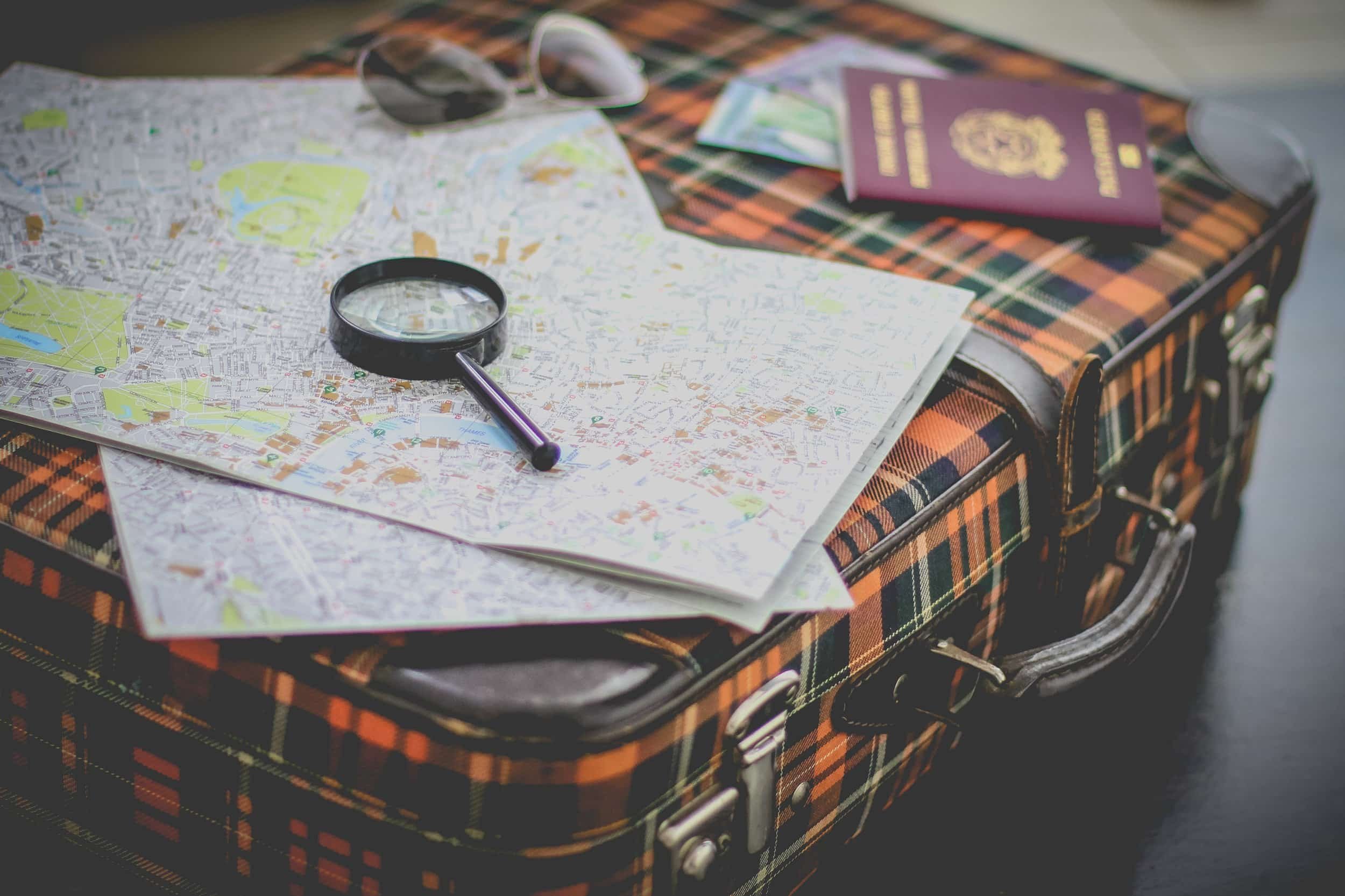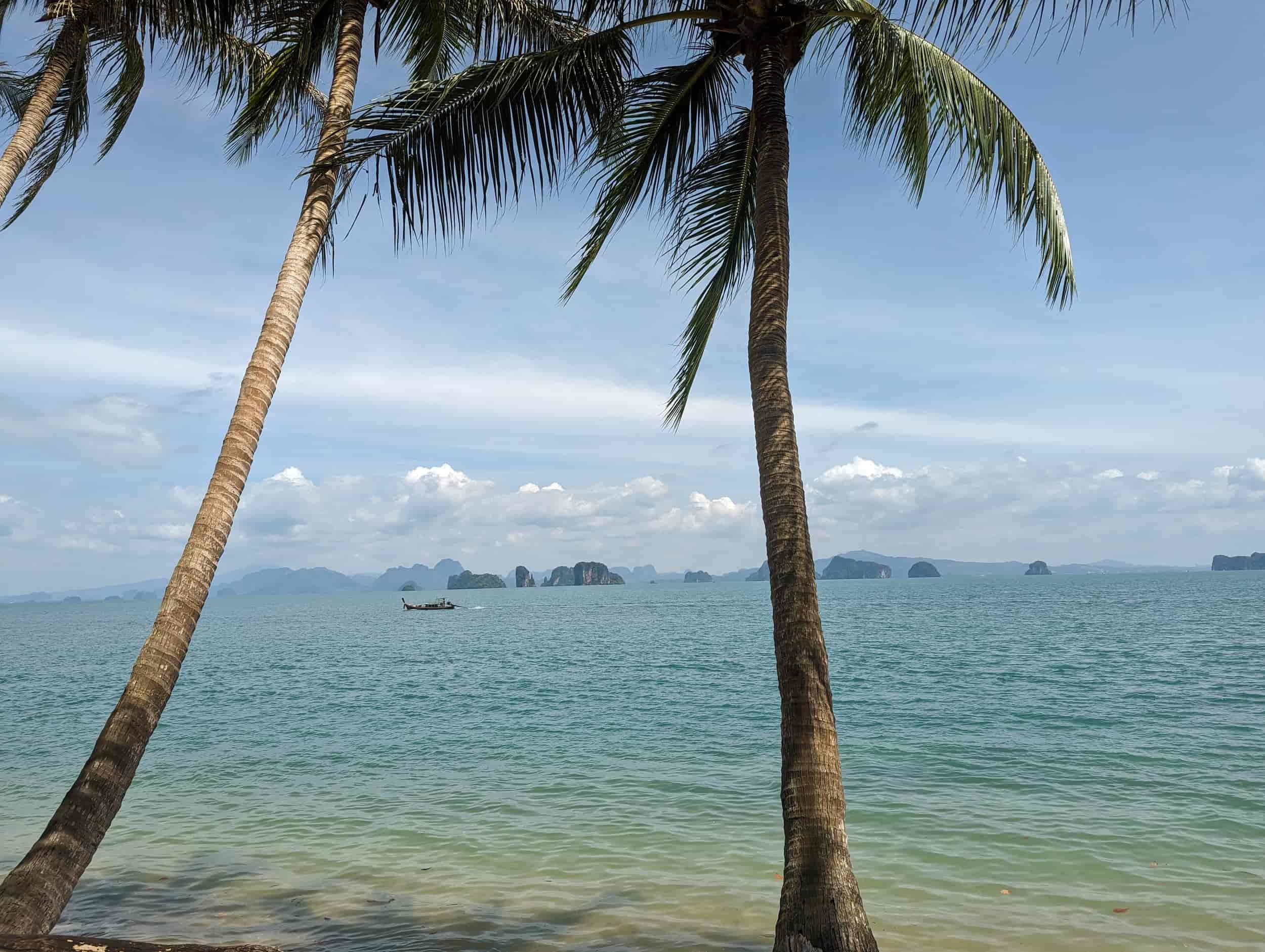Checklist for Digital Nomads When Arriving at a New Destination
This blog post was updated in October 2023.
When you arrive at a new and exciting digital nomad destination, it can be slightly stressful sometimes, because there are many things to take care of.
So, rather than stressing out and wondering if you forgot to think about something, I have compiled a checklist on what to take care of before and after you arrive at a new destination.
Before Arrival
Choosing the right destination for you
This may sound super obvious, but before you decide to book or arrange anything, do check if it’s the right destination for you. What I mean by that is checking to see if what you think you will find in your destination of choice, is actually what you will find. For example, if you love being in nature and hiking, then maybe Bangkok or Tokyo are not for you. Instead, you may want to go to Costa Rica or Koh Lanta (Thailand). If you love cities instead, then maybe you should not go to Hoi An (Vietnam) but instead try Hanoi or Danang.
You can also check nomad related data on Nomadlist, such as Internet speed, safety for women, cost and other data. For example, Nomadlist has a page for Places near the beach in Asia, which neatly compiles all the best places for digital nomads in Asia near a beach.
Visa & Passport Validity
Logically, before you book your flight and accommodation in your new destination, you need to make sure that you don't need a visa, and if so, that you apply for one early enough. Sometimes, countries have complex visa regulations and they have different rules for different nationalities. For example, when Andrea and I went to Vietnam, I needed to apply for a visa because I'm Dutch, but he had a visa-free entry of 15 days. A lot of countries nowadays have an e-visa option, which you can easily apply and pay for online.
Also, make sure you know how many days you are allowed to stay in a country.
And be aware that border control counts the day you arrive as a day, as well as the day you leave! We were not aware of this when we went to Bali, so we thought we had a 2 month visa, and we arrived on 30th of March and left on 30th of June, but this meant that we had to pay an overstay penalty for 2 days.
Another thing to check is your passport expiry date. In many countries in Asia, you need a validity of at least 6 months to enter the country. If you enter a country and your passport expires in less than 6 months, you will have a problem. If you know your passport will expire pretty soon, it’s best to apply for a new passport in your residence country before leaving on a(nother) digital nomad trip.
Accommodation
This really depends on the country, because sometimes, you can arrange accommodation when you arrive, such as in many places in Thailand. But in most other countries it is not so easy, so it is recommended to book a place in advance, if you are planning to stay for 1 - 3 months. Also, be sure to have a look in which area you would like to stay, and if it's close to any co-working spaces, nice cafes and solid food options. For checking which area is the best for you, have a look on Hoodmaps.com.
We usually use Airbnb to find these accommodations, but there are more and more hotels that also cater for digital nomads and remote workers. You can check out Hotels.com or Booking.com to find apartments and.or aparthotels.
Another way to find accommodation which may be more of a hassle but may turn out cheaper than the above ways is joining digital nomad Facebook groups in the destination you are going and asking around there.
💡 Check out my post on Accommodation Platforms for Digital Nomads with more tips on how to find best, monthly accommodations!
Flight out of the country
Depending on the destination, sometimes airlines refuse to check you in or border control will refuse your entry if you cannot show that you have a flight out of the country. We experienced a similar issue when we checked into our flight from Macau to Taiwan. The lady at the check-in asked us for our flight booking out of Taiwan, but we didn't have one. She said that we would need to book one because otherwise, border control might not let us in. Of course, this depends on the country, but quite often, they may ask for proof of onward flight and if you don't have a booking, they might refuse to check you in or even let you enter the country. This is especially true for developed countries and countries that are more closed, such as China and Vietnam.
There are services such as Onward Ticket, where you can buy a cheap flight out of the country, but these flights are “rented” so you just get them for your visa application or for entering a country but you can’t actually take that flight. It’s not a totally legit method and I’ve never tried this myself, however, I’ve met a lot of people who have used this kind of service before.
Co-working space or Cafes?
It might also be good to think about where you are planning on working in your new destination. Do you want to sign up for a co-working space? Or would you rather try out different cafe's with good wifi?
For us, it really depended on the destination. For example, when we went to Koh Lanta, we knew that it was low season, so not many cafe's would be open. Also, we heard a lot of good things about KoHub, so we decided to sign up there. When we went to Chiang Mai on the other hand, we knew that wifi would be widely available and that there were lots of great cafe's around, that served cheap and excellent coffee. So in Chiang Mai, we decided to go work in different cafe's.
We also see differences in co-working spaces - some are managed really well and have a great social program where it’s easy to meet fellow nomads.
Plug Outlets
It's always good to know what kind of outlets they have at your new destination. Anyways, it's definitely recommended to always carry an adapter around when you are traveling. Have a look at our post about things to prepare before embarking on a digital nomad journey.
Vaccinations
It's also good to check if there are any vaccinations needed at your new destination. Especially if you are planning to go to more remote places in developing countries, you will need to get the standard tropical diseases vaccinations. If you stay in largely well-developed cities and touristic places, then there is mostly no need.
Travel Insurance
Getting travel insurance is important, especially as a digital nomad as you never know what might happen. Nowadays, there are many good providers that cater to digital nomads and remote workers trotting around the globe.
My personal favourite insurance provider is Safety Wing. It’s the best value for money compared to all the rest of providers in my opinion, and also according to many others. You can buy your Nomad Insurance from Safety Wing via this link.
You can also check my comprehensive guide on Best Digital Nomad Insurances (in 2023).
After Arrival
Cash and finding ATM without fees
Upon arrival, you'd probably want to get some cash, so locating the nearest ATM is a priority. Of course, the absolute best thing to do may be to sort out some cash from a bank before you arrive, so that you avoid high ATM fees at the airport.
Once you have settled down, it's also important to find an ATM that charges no fees or as little as possible. This is very different for each country and also depends on your bank. For example, in Bali, we found a bank that charged us no fee, but in Thailand we asked the bank for a 'cash advance' which basically meant that we paid the bank a certain amount of money with our card, and the bank would give us the amount in cash, without any fees (pro tip for Thailand btw!).
Sim cards / eSim cards
Another important thing to do at the airport (if possible) is to find and buy a local sim card with 4G or 3G. In some cases, it's not possible to find this at the airport, so you will need to do this when you arrive in the city. Have a look online to see if you can find reviews or blog posts about the best providers in town and analyze your options: what are the monthly charges and how much mobile data would you need?
The most handy option is an E-Simcard nowadays. E-sim cards can be downloaded to your phone, which means you don’t need a physical sim card! (Do check if your phone is compatible though!
A great option is Saily. Via the Saily app you can download a range of different simcards from different countries. You can find and download them via this link.
Transportation method
Another thing you will need to think about is how you are planning on getting from A to B in your new destination. Will there be public transport? Or is a scooter the best option? Additionally, have a look and see if Uber and/or Grab is available in the country, and how cheap or expensive it is.
In many places in South East Asia for example, renting a scooter is the best option as public transportation methods are limited. Make sure you get an international drivers license though, so that if something happens, you are covered by your insurance.
Meeting new people
Finally, you want to meet some like-minded people at your new destination, so have a look on Facebook groups and Meetups in your city and area to see if there is anything interesting for you to attend!
Perhaps the co-working space that you signed up for also organizes events, so that might also be a good way of meeting likeminded people.
Checklist at a glance ✅
Before arrival:
Is it the right destination for you?
Visa
Accommodation
Flight out of the country
Co-working space or cafes?
Plug outlets
Vaccinations
Travel Insurance
After arrival:
Cash and finding ATM’s without fees
Sim cards / eSim cards
Transportation method
Where to meet new people
That's it for the checklist! If you think that we forgot to mention something, don't hesitate to let me know in the comment section below! Thanks :)
Disclaimer: Some of the links in this article are affiliate links. This means that, if you buy through my links, I may earn a small commission that helps me create helpful content for the blog and it won’t cost you anything extra either, so it’s a win-win! I only recommend products if I think they will add value, so thanks for supporting Things Nomads Do!


